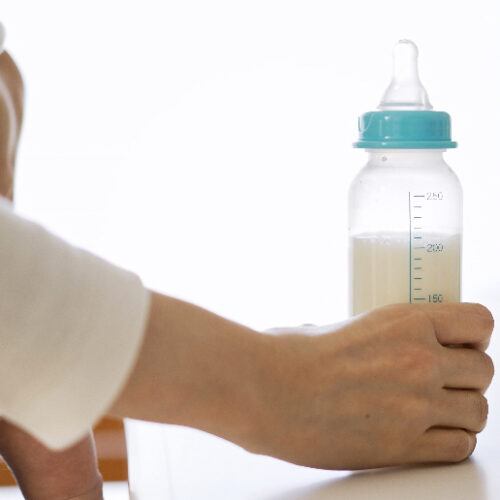Why parenting styles matter
We all parent differently, but did you know there are four distinct parenting styles that we are all a part of? Here we’ll walk through each of them and highlight which one is best.

Many parents feel anxious in the understanding that the manner in which they raise their child will have a powerful impact on how their little one grows and develops. We all have an idea of how best to raise children but there are four general parenting styles that most people settle into: Authoritarian, Authoritative, Permissive and Uninvolved. It should be noted that there is no ‘perfect’ parenting style although it is generally believed that Authoritative is the most well-rounded. Let’s have a look at all four of them and how they work.
AUTHORITARIAN
Authoritarian parents have a tendency to act as if they are always correct and that their children should do as they’re told. If a child objects to a rule and the parent’s response is to shut them down and not listen because they’re ‘in charge’, then that is an authoritarian approach. There is zero room for the child to negotiate with the parent and the parent expects the child to obey the laws without protest. If the child encounters a problem, they’re often not consulted when coming up with a solution. The parent presumes that they know best and don’t need any input from their child.

Children of authoritarian parents are often punished if they do something wrong. Instead of being taught how to make better choices, they get penalised for making a mistake. The result of this is children that obey rules carefully but they are far more likely to struggle with self-esteem issues later in life. They will be overly afraid of making mistakes or expressing how they feel.
Some children will begin to resent their parents under an authoritarian system. They may get in line and do as they’re told but inside they will be furious with their parents and they’ll begin to act out in various ways. They may not actually be doing as they’re told, they just appear to be doing so. This is a dangerous precedent to set as it can cause a divide in the relationship between parent and child.
AUTHORITATIVE
An authoritative parent will still have rules but they will explain to their child why those rules exist. They still expect these rules to be followed and there will be consequences if they’re broken. But it’s not that black and white. They will speak to their child about what happened, try to understand what went wrong and take all of that into account when determining what the resulting action should be. There is no doubt that the parent is still the person in control of the situation and setting the limits, but they are sure to take their child’s opinion on board and truly consider it.
Authoritative parents will explore ways to foster and maintain a healthy parent-child relationship. They research ways in which to reinforce positive behaviours from their children and they will do their best to prevent negative behaviours before they become a habit. All of this is done in a firm but loving way, with the child being included in some aspect of the decision making all along.
It is generally agreed that this parenting style is the one that produces the most well-rounded, healthiest kids. The children of authoritative parents usually grow up to feel more sure of themselves and able to act responsibly. Their decision-making is often stronger than others and they tend to be happier.
PERMISSIVE
Permissive parents are often seen as ‘walk-overs’. They start out with good intentions, setting out rules and boundaries. But the problems start when the child breaks one of these rules. The permissive parent won’t really react when their child oversteps a boundary. There often won’t be any consequences at all. They believe that their child means well and the less input from the parent the better. When there is any tension, they may be too lenient or forgiving. Even in cases where they are enforcing a rule or disciplining their little one, they may give in early and ease off the discipline.

Permissive parents may be uncomfortable in the parenting role and instead focus on being a friend of their child. This is the root of a lot of the issues. The child will be much less likely to follow the rules of someone acting as a friend and not a parent. It feels inconsistent when one moment you’re friends and the next you’re having to be strict with them for doing something wrong. This parenting style can be kind and gentle, lending an ear to the problems of the child. But it also results in a hesitance to do anything about the problems or to advise the child on how to behave properly.
Contrary to the aim of permissive parents, their children will often struggle in various ways. Academics are tough when discipline is a foreign concept. These kids will find it very hard to operate in a system such as school where there are countless rules to follow. This can lead to separateness and low self-esteem from feeling like they don’t fit in. Being unused to discipline can have a series of knock-on effects such as unhealthy eating, lack of exercise and poor hygiene.
UNINVOLVED
An uninvolved parent is quite detached from their child. They may not know much about their child’s day-to-day life, who they’re spending time with, where they’re hanging out or what they’re getting up to. In the home, there aren’t really any rules or even guidelines for the child to follow. There is an absence of attention from the parent to the child. Uninvolved parents expect their children to essentially figure it out on their own. While this is quite a neglectful way to treat a child, it’s not always the intention of the parent. They may be struggling themselves in some way and aren’t available to provide the care that a child requires.
Uninvolved parenting is a lot more common than you might think. Some people are unfamiliar with what it takes to raise a child in a healthy way, and others are just completely overwhelmed trying to stay on top of everything in their personal lives. However, the outcome stays the same. The child receives inconsistent messaging and doesn’t get the care that they need to develop properly. As with some of the other parenting styles, children of uninvolved parents are more likely to struggle with self-esteem issues. They might find school difficult and they may struggle to behave properly. Social situations can be very challenging as they haven’t received normal messaging when it comes to interacting with others.
WHAT SHOULD YOU DO?
It must be said that parents rarely fit into just one parenting style. Everyone is different and will therefore parent in slightly different ways. Each of us has things that we think are the most important and we’re more likely to enforce rules around these, whereas there are things we are more likely to let slide if we don’t think they’re as important. Research indicates that the authoritative style is the best for the healthy development of our children.
We are all trying to be the best parents we can and a little bit of knowledge goes a long way. Even being aware of the parenting styles and which ones you favour will help you to become a better parent for your little one. Parenting is all about balance. You will be able to make little changes here and there, knowing that you’re giving your child what they need to become their best selves. You’ve got this, mama!












Comments